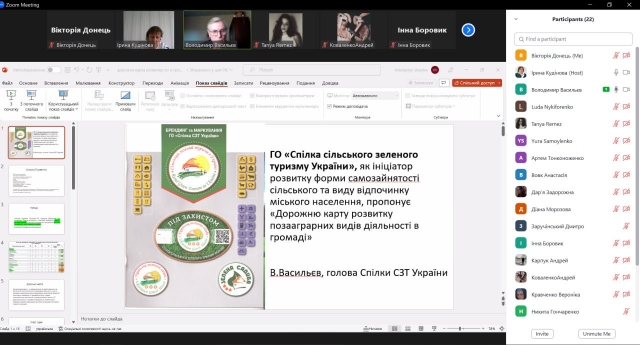Голова Спілки сільського зеленого туризму в Україні Володимир Васильєв прочитав відкриту лекцію студентам університету
Спікер акцентував увагу здобувачів на актуальності сільського зеленого туризму, його ролі й місця в структурі економіки, розвитку сільських громад і диверсифікації сільськогосподарського виробництва. Значну  увагу приділено розвитку позааграрної діяльності громад для підвищення туристичної привабливості України.
увагу приділено розвитку позааграрної діяльності громад для підвищення туристичної привабливості України.
Володимир Васильєв, комунікуючи зі студентами, задавав запитання, закликав до дискусії та розкриття власних ідей. Здобувачам запропоновано місця практики і запрошено до співпраці на постійній основі.


Студенти з радістю поділилися своїми враженнями:
Рибалка Дарина: «Мені дуже сподобалася лекція. Я дізналася багато корисної інформації, яка допоможе мені при реалізації себе як фахівця. Було пізнавально та цікаво послухати».
Грибова Юлія: «На сьогоднішній лекції я дізналася багато корисної інформації. Загалом мені дуже сподобалося, оскільки атмосфера та подача матеріалу була цікава та корисна».
Богдан Матковський: «Володимир Павлович познайомив з результатами проведеної Спілкою оцінки суспільної вигоди від туристичної діяльності для добробуту громади, впливу різних видів туристичної діяльності на рівень доходів. Надана інформація може бути використана під час написання випускної кваліфікаційної роботи та формування професійних компетентностей. Лекція стала мотивуючим фактором для мене щодо розвитку сільського зеленого туризму в Україні після перемоги».
Ірина КУДІНОВА,
гарант ОП «Туризм»